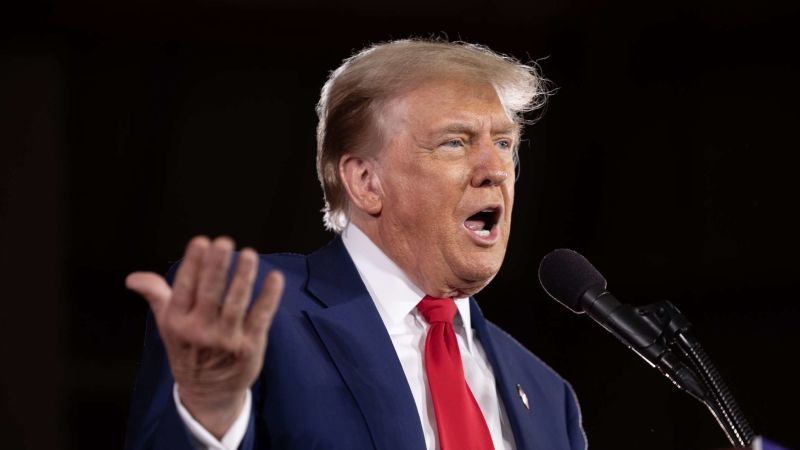Former President Donald Trump’s recent comments at a private luncheon at Mar-a-Lago have sparked controversy as he compared Democrats to the Gestapo, a reference to the Nazi Germany secret police. Three attendees reported Trump’s inflammatory remarks, further stoking tensions between the former president and the Democratic Party. Trump’s rhetoric has been characterized as divisive and extreme, with many criticizing his comparisons to one of history’s most oppressive regimes.
The comments made by Trump have reignited the ongoing debate about political rhetoric and the line between free speech and hate speech. Some argue that Trump’s comparison of Democrats to the Gestapo is a dangerous escalation of his attacks, while others defend his right to express his opinions. The impact of such language on political discourse and public perception is a central concern, as the country continues to grapple with deep divisions and partisan animosity.
Trump’s remarks come at a time when the Biden administration is facing challenges on multiple fronts, including the ongoing COVID-19 pandemic, economic recovery, and immigration reform. The former president’s continued presence and influence within the Republican Party have also contributed to a heightened sense of polarization and conflict in the political landscape. The implications of Trump’s language and rhetoric extend beyond his personal beliefs and actions, shaping the broader conversation around democracy, leadership, and societal values.
The role of the media in covering Trump’s comments and amplifying his message is also under scrutiny, with some questioning the responsibility of news outlets in disseminating such inflammatory language. The impact of sensationalism and bias in reporting on political figures like Trump can shape public opinion and influence public discourse, further entrenching partisan divides and undermining trust in institutions. The challenge of balancing freedom of speech with ethical journalism standards remains a key issue in the current media landscape.
As Trump continues to engage with his supporters and the Republican Party, the implications of his rhetoric and actions are likely to reverberate throughout the political sphere. The influence of his leadership style and messaging on the future of conservative politics and the country’s democratic norms is a subject of ongoing debate and analysis. The long-term consequences of Trump’s controversial statements and behavior on the political climate and public discourse remain uncertain as the nation navigates a turbulent and polarized political landscape.
In conclusion, former President Donald Trump’s recent comments at a private luncheon at Mar-a-Lago have once again ignited controversy and debate over political rhetoric, freedom of speech, and the role of the media in shaping public discourse. Trump’s comparison of Democrats to the Gestapo has been met with criticism and concern, reflecting the deep divisions and tensions within American society. The ongoing impact of Trump’s language and actions on the political landscape, public perception, and democratic values remains a subject of intense scrutiny and debate.













